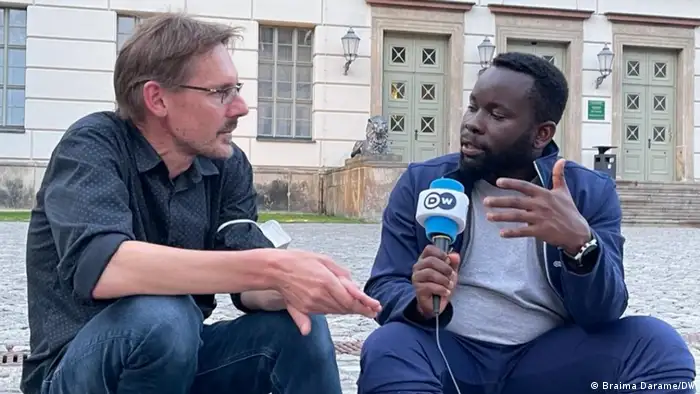Podcasting
Podcast interviewing: Tips for before, during and after
The podcast interview format is popular. But to get a good conversation going, you have to consider what needs to be done before, during and after your talk. Here are some tips to help make your interviews stand out.
Good interviews make for good podcasts. The interview show is a popular format, and here the host needs to get interesting, compelling responses since the entire show revolves around a conversation. Even if you’re producing a narrative podcast and will only use interview clips from your guest(s) in the final mix, you’ll still need good material. Below are some tips to get just that.
Before the interview:
Think about why you’re doing the interview
What do you want to know from the interviewee? Why do you think your listeners will care? What specifically do you and your audience want to know?
Talk to guests before committing
Some people do very interesting things, but still might not be right for your show. Have a conversation with prospective guests ahead of time and find out: Are they good talkers? Can they talk about the subject in a clear way?
Do your research
Find out what you can about your guest. Get biographical info online or from them. Read their book, listen to their shows, look at their art, and so on. Listen to previous interviews so you can cover new ground on your show, not rehash old material.
Sketch out your questions
Write down questions, maybe just keywords, to make sure you’re covering what you want to. Think about what your audience would like to know. Find out how much time your guest has for the interview so you can prioritize. Ask mostly “open” questions, ones that will give you longer answers and require guests to describe things. Those often start with “why” and “how”.
Test your equipment
Test your setup ahead of time to be sure things are working before your guest arrives. You might need to test again once you’re online if you’re doing an interview with a digital tool.
During the interview:
Remember eye contact
Look at your guest while talking, not your list of questions. Don't let the mic be the focus. Position mics so they don’t form a visual and mental barrier. (But make sure the audio is still good.)
Start soft so guests open up
Set a friendly tone to put your guest at ease. Sometimes lighter questions can get people feeling relaxed before you move toward the meatier topics.
Listen Actively
Give your guest your full attention. That means really hearing what is being said and showing them that they’re being heard. You can do that with non-verbal cues, like nods, smiles, eye contact. Avoid saying “uh-huh” and “yeah”. Let people finish what they’re saying.
Follow the most interesting path
If your guests give you a very interesting or unexpected response to a question, follow up on that. It might take the conversation in an entirely different direction, and that’s fine. Don’t be afraid to go off script.
Keep questions shorter and tighter
Avoid rambling or double-barreled questions. And remember, the guest is the priority, not you. Your job is to get them to talk. Let them shine.
Avoid jargon, unfamiliar terms
If your guest uses a term or a reference that all listeners might not understand, ask them to explain it. Most listeners aren’t experts. Make sure everyone understands.
Don’t be afraid of silence or mistakes
Resist the temptation to jump in and fill every second with talk. Let your guest think. Often, some bit of truth will follow a silence. Let people know they can repeat things; you can edit them later.
After the interview:
Tell guests the next steps
How long will the editing process take? Can they hear the episode ahead of publishing? How can they listen?
Think about (cross-)promotion
Get a picture with your guest to use on your social media channels. Ask them if they can promote your show on their feeds. Are you interviewing a podcaster? See if you can make an appearance on their show. It’s a win-win since you both tap into each other’s audiences.
For further reading, check out the links below!
Are you enjoying this content? Then subscribe to sign up below for DW Akademie’s newsletter, PodCircle. It features practical news and information for podcasters around the world and insights from successful podcast producers.
The goal of the PodcasTraining project of DW Akademie is to support media organizations and media creators who want to strengthen their podcasting skills and knowledge, including how to develop, produce and distribute crisis podcasts. The project is supported by the German Federal Ministry for Economic Cooperation and Development (BMZ).
DW recommends
WWW links
- Date 29.08.2023
- Author Kyle James
- Feedback: Send us your feedback.
- Print Print this page
- Permalink https://p.dw.com/p/4Vhkn
- Date 29.08.2023
- Author Kyle James
- Send us your feedback.
- Print Print this page
- Permalink https://p.dw.com/p/4Vhkn

